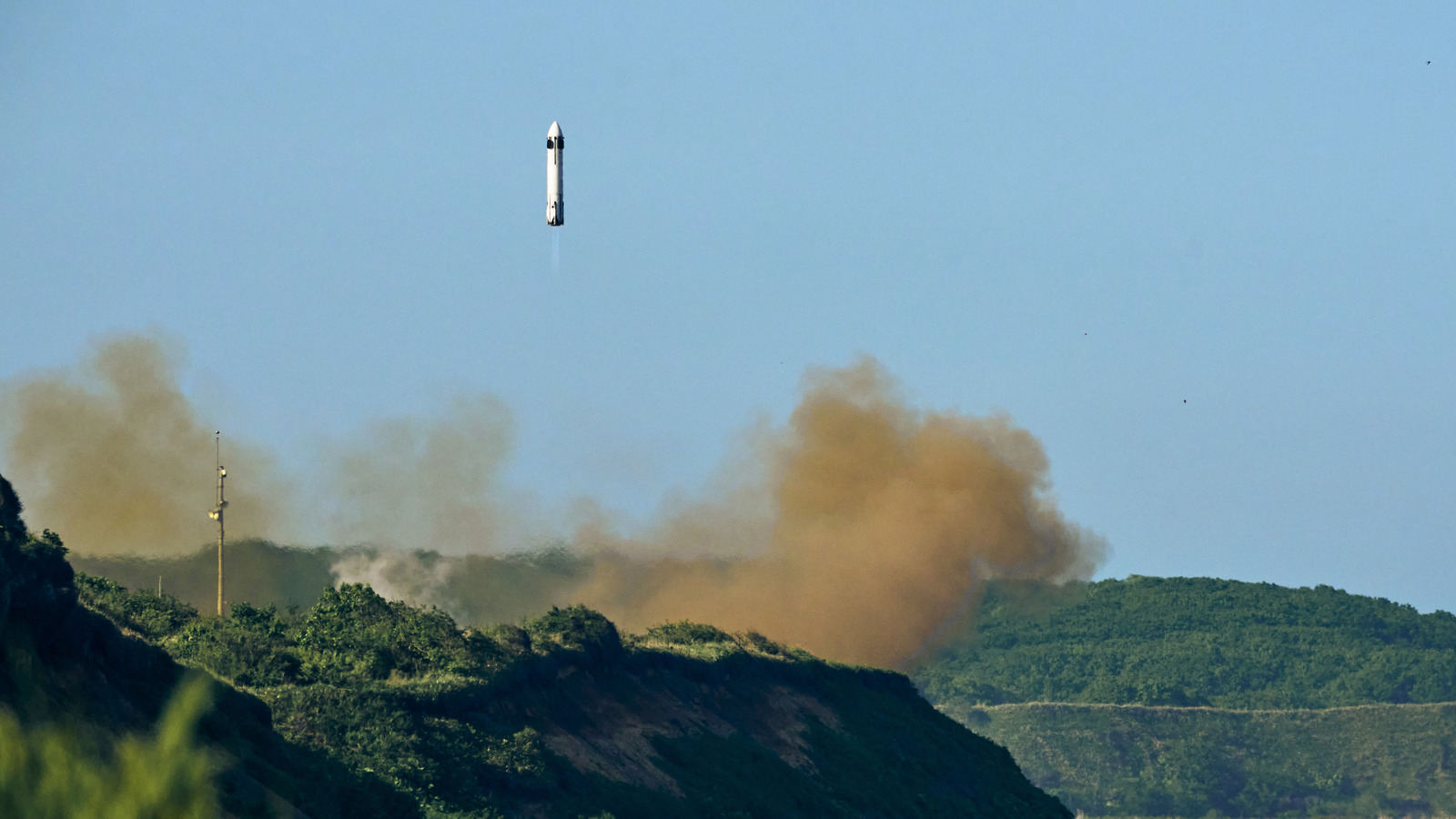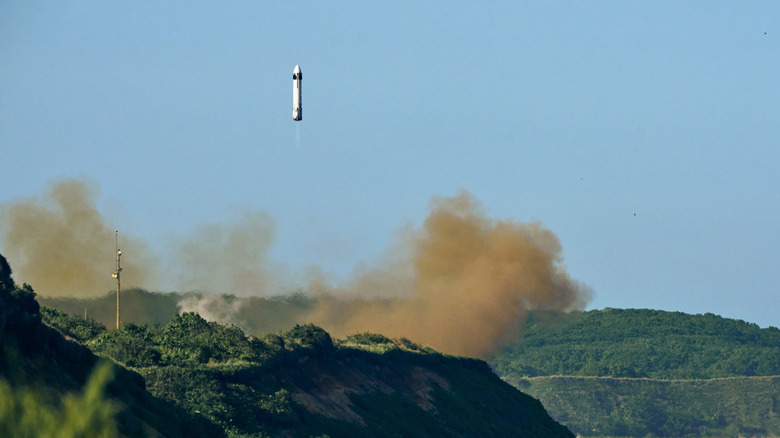Honda, the automotive, motorcycle, small-engine, and robotics company, pushed Japan several steps closer to its outer space ambitions on Tuesday with the surprise successful test of its first reusable rocket ship. The 20-foot tall experimental “reusable launch vehicle” achieved flight stability during ascent and descent, and reliably plopped itself back on terra firma about a foot away from its intended target bullseye. Honda wasn’t looking to get this experimental rocket into space, as the initial test was all about take offs and landings, going just 889 feet up at its maximum altitude. The company announced its goal to achieve suborbital space flight by 2029, giving Japanese companies an outlet for launching satellites without relying on Russia, China, or American billionaire-run companies like SpaceX and Blue Origin.
The small Honda rocket is about one tenth the size of the first successful reusable rocket, SpaceX’s Falcon 9 Full Thrust SES-9 launch in 2015, making it ideal for smaller payloads and using less fuel. The objective of a reusable rocket is to significantly reduce the operating costs of space travel, lowering the barrier to entry for something like a satellite launch, for example.
What goes up must come down
From takeoff to touchdown–a flight just under one minute–the rocket returned back to earth in immaculate condition. While SpaceX has suffered many notable rocket failures, it has to date completed 499 successful Falcon 9 and Falcon Heavy missions, marking the viability of reusable rockets for many other companies, including Honda, to pursue. SpaceX has cornered the market on launching junk into space, and is responsible for a little under half of global annual orbital launches.
The Japanese government has prioritized private space commoditization, aiming to double the country’s space industry through massive subsidies, including private rockets, satellites, and even lunar missions. Honda says that it began researching rocket development specifically for satellite launching, as it “could lead to various services that are also compatible with other Honda business.” The need for ever more satellites in low Earth orbit continues to grow, and Honda wants to be ready for the future of connected cars and potentially autonomous driving. Toyota, Japan’s largest automaker, has invested in Japan’s Interstellar Technologies for its own space and satellite ambitions.
Yeah, that’s what we need, more space junk.



